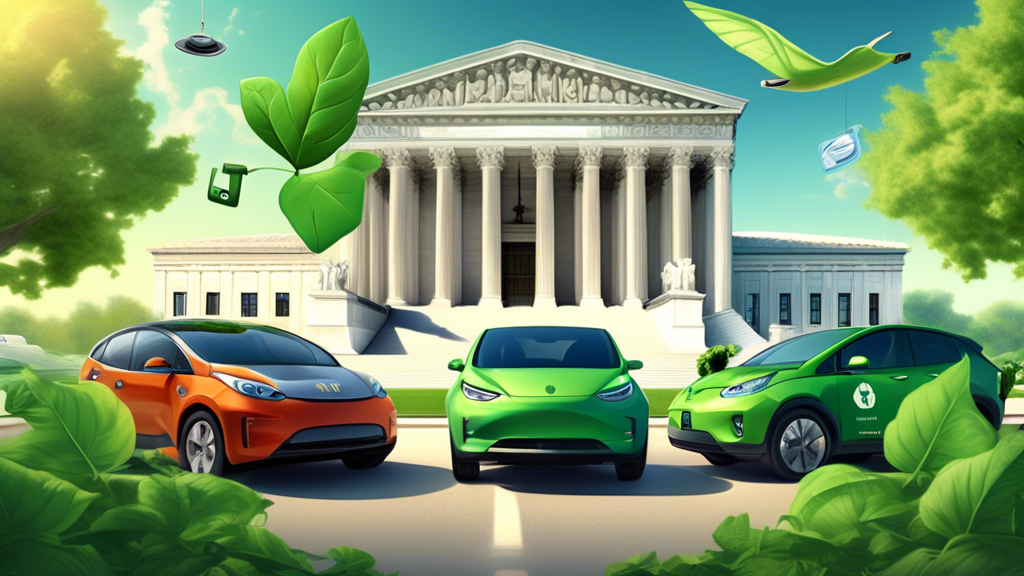
The EPA’s ‘De Facto EV Regulation’ May Come Under Supreme Court Review
The Environmental Protection Agency (EPA) has initiated a series of stringent tailpipe emissions regulations that have effectively enforced a de facto mandate for electric vehicles (EVs). As these regulations face scrutiny, there is growing anticipation that they may soon attract the attention of the Supreme Court.
EPA’s Regulatory Power and Scope
In its efforts to combat climate change and reduce greenhouse gas emissions, the EPA has set emissions limits so stringent that traditional gas- and diesel-powered vehicles cannot comply. This regulatory approach is compelling manufacturers to increase the proportion of electric and hybrid vehicles in their production fleets. The implications of these actions echo throughout the automotive industry and beyond.
Impact on the Automotive Sector
According to projections from the EPA, by model year 2032, a staggering 63% of new passenger cars and 52% of new light- and medium-duty trucks will need to be EVs or plug-in hybrids. The forecast for new heavy-duty trucks is even broader, estimating that 14% to 67% will fall under the same category. This marks a radical shift from current production levels, which represent only single-digit percentages of EVs.
Constitutional and Legislative Concerns
Critics argue that the EPA’s robust regulatory framework may constitute an overreach of its statutory authority under the Clean Air Act. This concern resonates with the Supreme Court’s previous decision in West Virginia v. EPA, where the court determined that the agency lacked the authority to significantly alter the electricity market. Detractors claim that the EPA’s regulatory push undermines constitutional structures and fundamental democratic processes.
Economic and Strategic Implications
The rapid transition towards electric vehicles is expected to have far-reaching economic consequences, including potential job losses within the U.S. auto industry. This shift may inadvertently enhance employment opportunities in China, which could become more crucial as the United States becomes dependent on Chinese supplies for critical minerals and other inputs required in EV production. This presents a strategic vulnerability for the U.S., potentially compromising its competitive stance in global markets.
Energy and Grid Impact
Transitioning to a significantly higher share of electric vehicles is projected to place considerable strain on the nation’s electrical grid. Meeting the increased demand for electricity will necessitate substantial enhancements in production capacity, which could result in elevated energy prices for consumers. This challenge is particularly pressing as the EPA continues to pursue policies aimed at phasing out fossil fuel power plants.
Supreme Court Ruling on Chevron Deference
A recent ruling by the Supreme Court that overturned the Chevron deference doctrine signifies a pivotal change in the relationship between federal agencies and judicial review. Courts will no longer grant automatic deference to agency interpretations of ambiguous laws, transferring more power to Congress and potentially limiting the EPA’s regulatory reach concerning the EV mandates and other climate regulations.
Legal Challenges
The regulations instituted by the EPA could face significant legal challenges, most notably a lawsuit initiated by a coalition of 26 states. This legal action targets the National Highway Traffic Safety Administration (NHTSA) over new fuel economy standards that compel major increases in EV production. These legal disputes could culminate in a noteworthy Supreme Court case.
Consumer and Industry Impact
Should these legal challenges succeed, they may provide increased regulatory certainty and autonomy for both consumers and the automotive aftermarket. With diminished regulatory authority due to curtailed agency powers, consumers might benefit from a more balanced marketplace with reduced pressures from federal mandates.
As the EPA’s de facto EV mandate looms over the automotive sector, its fate now hinges on the intersection of regulatory authority, economic implications, and legal battles—elements that could soon find their way to the highest court in the land.
